Welcome to a world where our feathered, scaly, and furry friends also need the key to a happy, healthy life—it’s not just a human luxury! Have you ever wondered who the unsung heroes are that keep your pets, livestock, and natural marvels eating balanced diets?
Now enter the world of animal nutritionists, the magicians who make sure that every wing soars with energy, every hoof stomps, and every tail wags. Here, we’re delving deeply into the delectable realm of animal nutrition and learning how it’s a holistic journey that takes place in backyards, barns, and wild environments rather than just worrying about what’s in the bowl.

So grab a seat and join us as we set off on a wonderful journey across the varied terrains of animal nutrition! (1)
Educational Requirements:
The first step towards a job as an animal nutritionist is completing your education, usually demonstrated by earning a bachelor’s degree. This scholarly first step establishes the groundwork for a deep comprehension of the complex field of animal feeding. Think of it as a compass that will lead you across the many environments of nutrition, ranging from the tiniest microorganisms to the largest species.
Choose your course carefully. Your specialization will be shown on a canvas made of majors like animal science, nutrition, or similar subjects. These majors offer the breadth of knowledge necessary to understand the distinct nutritional requirements of different animals. Nutrition studies the art and science of creating balanced meals, whereas Animal Science provides insights into the physiology and behavior of animals.
However, the courses you pass are more important than the title on your certificate. Nutrition coursework becomes the focus of knowledge about how every food molds the health of your future charges, while biology and chemistry explore the secrets of life at the molecular level and the enchantment of nutrients.
Therefore, keep in mind that every lecture, experiment, and project you complete when you enter the academic world is a brushstroke in the larger picture of your education in animal nutrition.
Relevant Experience:
Theoretical understanding is the compass in the ever-changing area of animal nutrition, but real-world experience is the road map that leads to true mastery. It is impossible to overestimate the importance of acquiring relevant experience—it is the furnace through which your academic knowledge is transformed into practical knowledge.
Practical Experience:
Consider yourself an active participant in the field of animal nutrition rather than only a spectator. This is where your backstage passes originate from volunteer work, internships, and entry-level jobs. Participating in real-world situations enables you to observe the subtleties of routine animal care, comprehend the difficulties that various species encounter, and put answers into action right away.
Internships, volunteer work, or entry-level positions:
Internships provide intensive introductions to the various areas of animal nutrition, from creating meals for animals to designing regimens for household pets. Opportunities to volunteer make you feel good inside while giving back to animal welfare and acquiring practical experience. Your first job should be entry-level employment where you can actively apply the ideas you learn in the classroom to the changing environments of farms, shelters, or animal conservation areas.
Demonstrating the Combination of Practical Experience and Intellectual Understanding:
The confluence of practical experience and academic understanding is where the magic happens. Textbooks provide the foundation; real experience hones your senses, polishes your judgment, and improves your ability to modify feeding schedules to suit individual animals’ requirements. It’s the distinction between knowing what a diet does for your charges’ health and just reading about it. Theory and practice are your essential allies on the path to becoming a skilled animal nutritionist, providing you with a comprehensive understanding that makes you stand out in the industry.
Seek Postgraduate Studies (Optional): Increasing Specialization:
Obtaining a master’s or doctoral degree in animal nutrition is a game-changing choice for those who have a strong desire to push the frontiers of the field and a voracious appetite for in-depth information. Although it’s not a requirement, it opens doors to more senior positions and a plethora of opportunities in academia, research, and specialized fields.
A Master’s or PhD:
Consider a master’s or doctoral degree as the entryway to a higher level of knowledge. These advanced programs provide a deeper dive into particular elements of animal nutrition, going beyond the fundamental understanding gained during a bachelor’s degree. Pursuing further education is a strategic but discretionary choice for those hoping to have a big effect in their area.
Research:
A significant contribution to the always-changing field of animal nutrition research is made possible by advanced degrees. With advanced education, you may be at the vanguard of ground-breaking findings in a variety of fields, such as investigating novel dietary solutions, discovering the subtleties of nutrient combinations, or investigating the effects of nutrition on animal behavior.
Academia:
Academics become a natural choice for people who are passionate about education. Obtaining a master’s or doctoral degree allows you to influence the future generation of animal nutritionists in addition to expanding your knowledge in the field. Serving as a mentor and advisor in educational settings enables you to share your experience, pique students’ interests, and advance the field.
Specialized Areas:
Advanced education is characterized by specialization. Advanced degrees offer the knowledge required to carve out a position in specialized fields, whether it’s investigating sustainable feeding techniques, concentrating on nutrition for certain species, or working as a consultant for particular problems. This specific knowledge is essential for handling complicated problems and coming to wise conclusions; it is more than just a certification.
Developing Specialized Skills is the key to Success:
Developing specialized abilities is essential to becoming a competent nutritionist in the complex field of animal nutrition. It’s not just about your knowledge; it’s also about your abilities—skills that make you unique in comprehending, modifying, and successfully presenting nutritional solutions.
Problem-Solving Skills:
When faced with obstacles, problem-solving abilities are put to use, whether it be in creating solutions for animals with particular nutritional needs or modifying diets for certain medical disorders. What makes an expert animal nutritionist different is their capacity for analysis and problem-solving with nutrition.
Communication Skills:
Working as an animal nutritionist involves more than simply connecting with your customers’ four-legged companions; it also involves properly communicating with their human equivalents. When interacting with farmers, other professionals, and pet owners, effective communication is essential. It involves converting intricate nutritional insights into knowledge that can be applied and understood.
Networking:
Making connections with like-minded individuals and keeping up with industry advancements is not only beneficial in the fast-paced world of animal nutrition, but it’s also a calculated step toward professional excellence and progress.
Joining Organizations:
It’s encouraging to think about joining prestigious associations like the American Academy of Veterinary Nutrition for animal nutritionists. In the industry, these groups act as centers of expertise, cooperation, and assistance.
Networking with Professionals:
Professional development depends heavily on networking, and the subject of animal nutrition is no exception. Getting in touch with veterinarians, other nutritionists, and business leaders offers opportunities to exchange knowledge, talk about best practices, and remain up to date on current developments.
Attending Seminars and Conferences:
Think of workshops, conferences, and seminars as your windows into the animal nutrition sector. Not only can you earn continuing education credits by attending these events, but you can also learn about the newest scientific discoveries, fashion trends, and cutting-edge technology.
Certifications:
Acquiring the necessary qualifications in the field of animal nutrition is more than just a mark of honor; it’s evidence of your commitment to remaining up to date with the latest developments in this dynamic area. This section will discuss the importance of certifications, license requirements (if any), and how to prepare for certification tests.
Significance of Relevant Certifications:
Animal nutrition certifications serve as a kind of professional compass, pointing practitioners and employers in the direction of those with specific knowledge and abilities. An important example would be the Certified Professional Animal Scientist (CPAS) certificate, which is granted by the American Registry of Professional Animal Scientists. These certificates not only attest to your experience but also strengthen your reputation among colleagues, employers, and clients. They serve as an outward representation of your dedication to upholding strict guidelines for animal feeding.
Licensing:
Certification establishes a national or worldwide benchmark for quality, but licensing is sometimes region-specific and required by local regulatory agencies. For example, in certain areas, completing specific coursework requirements, gaining real-world experience, and passing licensure examinations are necessary to become a certified animal nutritionist. Establishing a legitimate and reputable practice in your community requires understanding and adherence to these rules.
Career Opportunities:
Finding your specialization in a dynamic and diversified profession is just as important as landing a position when starting a career in animal nutrition. Together, we will examine effective resume and cover letter writing techniques, examine several industry-specific job openings, and stress the need to develop a strong professional portfolio.
Potential Job Opportunities in Various Sectors:
There are many interesting and varied job options available in the subject of animal nutrition. There are positions in agriculture that may involve feeding techniques optimization, animal diet formulation, or farmer consultation. There is potential in the pet food sector to provide companion animals with wholesome, well-balanced diets. Research organizations are looking for experts to help with cutting-edge findings and improvements in animal nutrition.
The task of creating customized meals for exotic animals may fall under the purview of zoos and wildlife conservation groups. Furthermore, jobs in animal nutrition and welfare may be found in government agencies, nonprofits, and commercial consulting businesses. (2)
Building Strong Portfolio:
A solid professional portfolio might help you stand out in a crowded sector. Provide thorough summaries of the assignments you’ve completed, the studies you’ve done, and any papers or presentations you’ve helped with. Display your affiliations in professional associations, certificates, and any ongoing education programs you have participated in. A well-organized portfolio acts as a concrete example of your commitment to continuous professional growth in addition to demonstrating your competence.
Continuing Education:
The quest for knowledge in the ever-changing field of animal nutrition is a lifetime endeavor that doesn’t end with a degree or certification. Continuing education is a commitment to maintaining your knowledge of industry trends, honing your abilities, and making sure your expertise is still applicable. It’s not just a checkbox. Let’s discuss the value of lifelong learning, look at ways to remain current with research, and acknowledge the advantages of attending seminars, webinars, and other courses.
The Need for Ongoing Learning:
The topic of animal nutrition is always evolving due to new developments in science, technology, and viewpoints. Accepting lifelong learning is not just a professional duty, but also a calculated decision that will help you succeed in this fast-paced industry. Whether you are an experienced professional or a fresh graduate, your commitment to lifelong learning shows that you are committed to giving the animals in your care the finest nutrition possible.
Being Updated on the Latest Research and Developments:
It’s critical to be knowledgeable if you want to keep on top of animal nutrition. Keep yourself updated on the most recent research findings and new trends by reading scientific journals regularly, going to conferences, and subscribing to credible industry periodicals. Participate in online discussion groups and forums where experts exchange ideas and talk about the issues of the day.
Additionally, think about taking part in online courses that cover cutting-edge subjects or attending webinars led by professionals in the industry. These resources not only impart knowledge but also make it easier to network with others who are as passionate about improving animal nutrition as you are.
A constant thread running through each stage is enthusiasm, devotion, and lifelong learning. It’s not only about learning; it’s about living a life dedicated to the welfare of animals. There’s always more to learn, whether it’s through webinars, workshops, or extra classes.
In conclusion, pursuing a career in animal nutrition is more than simply a job; it’s a journey driven by a steadfast desire to improve the lives of our animal friends. Thus, embrace the road to success in animal nutrition by entering this exciting area with a heart full of devotion, a mind eager for information, and a mentality that never stops learning.
References:
- https://eliasnutri.files.wordpress.com/2020/07/animal-nutrition-7th-edition.pdf
- https://www.prospects.ac.uk/job-profiles/animal-nutritionist

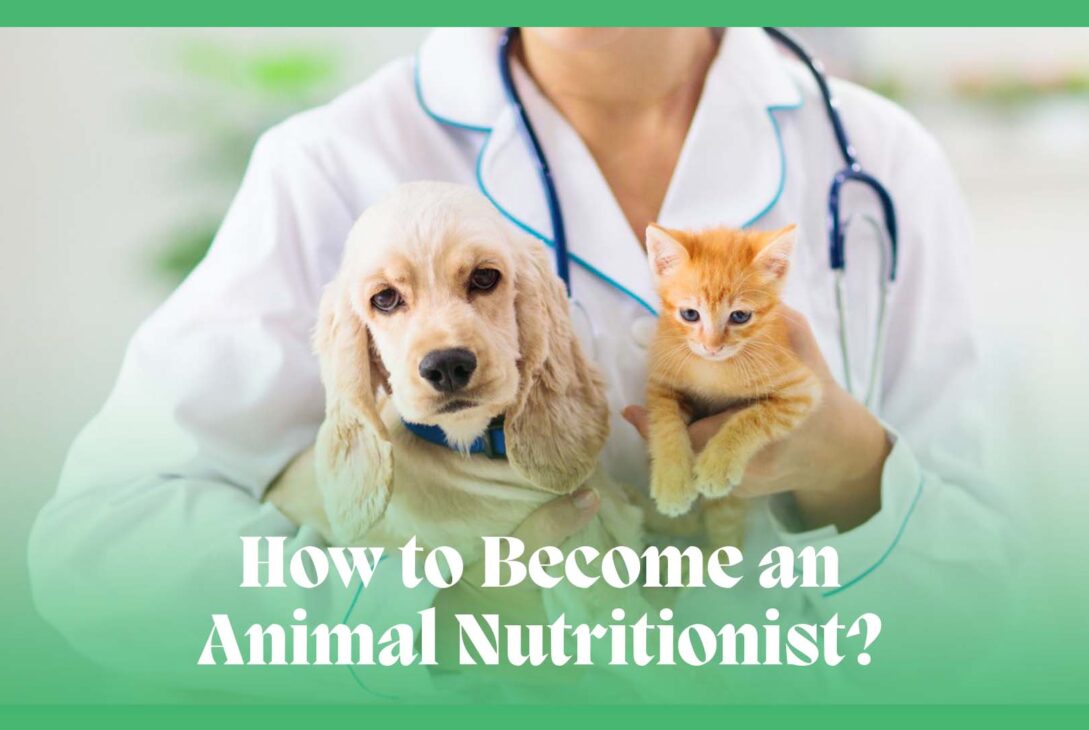



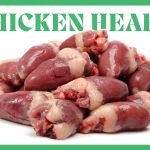
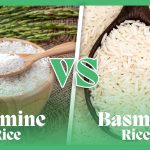
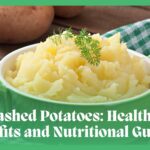
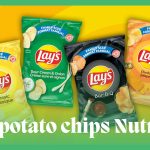
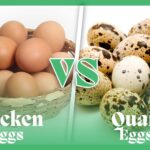
I wonder how much work goes into creating a website this excellent and educational. I’ve read a few really good things here, and it’s definitely worth saving for future visits.